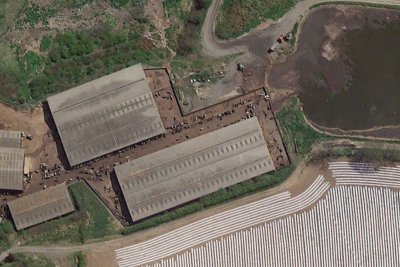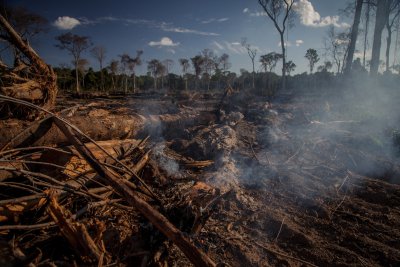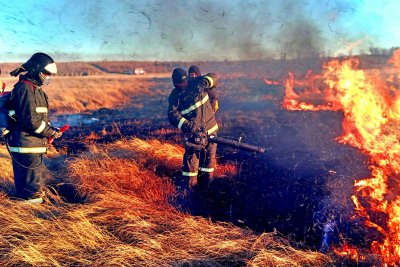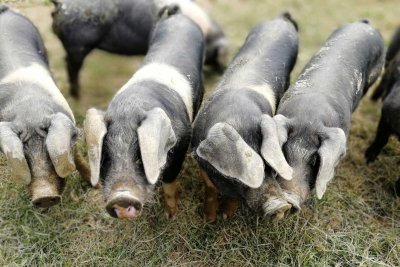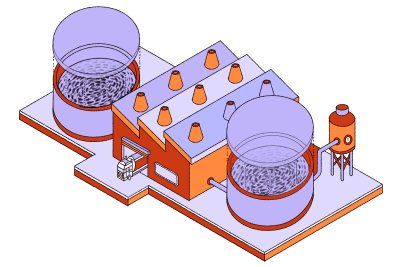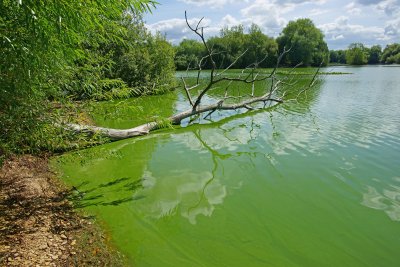 Algae in river at Frampton on Severn, Gloucestershire. Credit: PJ photography
Algae in river at Frampton on Severn, Gloucestershire. Credit: PJ photography

Cunliffe Review calls for pollution policy overhaul - but a key threat is missing
Sustain responds to new report on the prevention of water pollution for England and Wales
The Cunliffe review – released yesterday, recommended a major shakeup in the way water pollution is prevented in England and Wales including that diffuse agricultural pollution must be better addressed.
However, the report does not set out measures to tackle the continued growth in the number and size of intensive livestock units (ILUs). As such the review risks failing to effectively address pollution from agriculture and could harm efforts to transition to sustainable farming.
Ruth Westcott, campaign manager for the climate and nature emergncy at Sustain said:
“The report gets a lot right. We need transformational and holistic change. But if we genuinely want to tackle river pollution, tackle climate change, create better jobs and improve food security, we need to stop intensive livestock megafarms from expanding and growing. Otherwise efforts to reduce pollution will be dwarfed by an increase in pollution from these facilities. The agribusinesses behind these units need to be held responsible for the colossal amounts of waste they produce”
The review identifies that agriculture is the main source of pollution in England and Wales, and that significant change is needed. It says ‘the levers to achieve water system objectives across all sectors should be strengthened, with a particular focus on agriculture’. It also recommends a holistic approach; that strategies to address river pollution should help deliver wider aims of public health and climate change.
The measures proposed for agriculture include:
- A recommendation that new laws are needed, because the changes required are so significant that weaker policy options won’t be sufficient. Principles should be set in legislation, with clear objectives and duties for government bodies and companies to follow.
- There are gaps in regulation, which must be closed. The review notes that the very low levels of compliance with the Farming Rules for Water in England and the Water Resources (Control of Agricultural Pollution) (Wales) Regulations 2021 in Wales demonstrate that they are not achieving their intended purpose.
- Agriculture targets, farming representatives and issues should be integrated into existing Regional Plans and initiatives aiming to clean up rivers, managed largely by water companies, including River Basin Management Plans. These have historically been poor at including measures to reduce agriculture.
- The UK and Welsh governments should set out existing levers and additional mechanisms needed to mitigate agriculture pollution.
- A new regulator to replace Ofwat – with some Environment Agency functions related to water transferred to this new regulator – which could include monitoring of water pollution from agriculture
It now falls to the government to respond to the many issues raised in the report. UK and international courts have recently ruled that the current regulatory system is not effectively protecting rivers and people, and without tougher measures more lawsuits are a risk. Sustain is calling for an approach that supports sustainable farming, boosts food security, cuts emissions, and holds polluting agribusinesses accountable for their waste. This includes:
1. A presumption against any further expansion of intensive livestock units in polluted catchments, as per the recommendations of the Environmental Audit Committee.
2. Closing loopholes in environmental permits: Environmental permits for ILUs currently cover animal slurry and waste when it is stored onsite. Permit holders should also be required to demonstrate that there is a nutrient need at farms they wish to export to. For both human and animal slurry, companies should only be permitted to produce waste where there is a route to dispose of it without increasing pollution risk. Smaller intensive units, and indoor-reared dairy and beef operations should also be required to have an environmental permit.
3. Water clean-up measures should be linked with climate and nature targets. The Climate Change Committee says we need to reduce livestock by about 30% in the next 15 years to meet climate targets. This could be delivered by:
- Investing in equitable, attractive routes out of intensive poultry, pig, dairy and beef farming for the many farmers that would like to do sustainable farming or other enterprises instead. The report notes that some industry-led initiatives have engaged in nutrient offsetting or reduction measures, which have included reducing livestock numbers. These could be an effective solution if they ensure good outcomes for farmers and the wider community, including food security.
- Invest in a healthy protein growth strategy, to increase UK production and consumption of protein sources that have a lower environmental footprint, including beans, pulses, legumes and vegetables.
4. Increasing enforcement for persistent polluters. A recent investigation found shockingly low levels of enforcement for breaches of environmental permits. Regulators should be focussing on those producing pollution. (Sustain’s recent report found that just 10 agribusinesses are responsible for as much waste as 10 cities)
Will White, sustainable farming campaign coordinator at Sustain said:
“Agriculture has again been identified as the main cause of river pollution in England and Wales. It a disaster, but it doesn’t need to be this way. Many farmers are demonstrating that healthy food can be produced in a nature-friendly way including organic, producing fruit and vegetables and pulses, and outdoor reared and mixed systems that include livestock in a sustainable way. But many farmers are being forced to intensify and pollution is an inevitable outcome of this intensification. So, we must be bolder and ensure farmers can make a decent living from farming sustainably”
Food for the Planet: Helping local authorities to tackle the climate and nature emergency through food.
Sustain
The Green House
244-254 Cambridge Heath Road
London E2 9DA
020 3559 6777
sustain@sustainweb.org
Sustain advocates food and agriculture policies and practices that enhance the health and welfare of people and animals, improve the working and living environment, promote equity and enrich society and culture.
© Sustain 2026
Registered charity (no. 1018643)
Data privacy & cookies
Icons by Icons8

